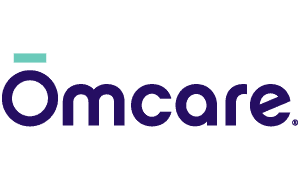3 in 4 older Americans want to stay in their homes as they age. Yet, home healthcare has become increasingly expensive, and it’s no longer an affordable option for the average patient. In 2022, the median monthly cost for full-time home healthcare is $4,500.
That’s $54,000 a year.
Thankfully, there are a host of technological healthcare solutions available for patients who have conditions that need monitoring and treating. Before you decide to hire a nurse to come over daily, let’s explore other, more cost-effective healthcare options.
Technology’s role in home healthcare
Technology has opened up a world of possibilities for elderly people with disabilities and chronic diseases. Patients are no longer reliant on in-person healthcare to live independent lives.
“We’re already seeing some really interesting ways technology is being used to help people as they age,” says Ben Jonash, an author of The Future of Aging. Medical technology is allowing patients to age gracefully and in their own homes, even when they have health issues. These technologies represent alternatives for elderly patients to avoid expensive, in-person healthcare.
3 alternatives to home healthcare
1. Telemedicine
The first alternative to in-person healthcare is telemedicine. This is what it sounds like: a medical professional can provide their services through video chat, rather than in-person. Telemedicine, or telehealth, provides the following benefits:
- Promotes continuity of care
- Decreases the cost of care
- Improves patient self-management and clinical outcomes
- Reduces exposure to illness
With telemedicine, patients can still get the care they need, without stepping outside their homes. They’ll still receive access to the same healthcare that they would in-person. And at times, care is even more accessible, easier to get, and quicker.
2. Mobile Health
When a patient self monitors, then transfers the data to an online healthcare platform, it’s referred to as “mobile health.” Mobile health, similarly to telemedicine, represents another affordable alternative to at-home healthcare. Here are some examples of mobile health:
- Tracking dietary intake and glucose levels for diabetes management
- Remote patient monitoring (in these instances, devices do the monitoring for the patients)
- Point-of-care diagnostics
- Mobile health applications that connect patients with providers (for example, real-time messaging)
Another example of mobile health would be when a patient wears an emergency health tracking device. Medical alert systems can alarm doctors and emergency responders when patients can’t do so themselves.
Mobile health, in many cases, removed the need to have someone in the home, making it an incredible alternative to in-home healthcare.
3. Medication management
Technology greatly enhances the ability of providers to remotely manage medications, allowing easy access for patients.Online medication management is widely known as “telepharmacy.” These are applications that remind patients of refill schedules and allow them to easily message pharmacists to request refills.
Using online medication management, patients can have their medicine delivered. Some medication management tools even include automatic pill dispensers and medication reminders. By taking the entire process of managing medicine online, patients are more likely to adhere to their medication schedules, leading to more favorable health outcomes.
Technology drives better health outcomes
Nowadays, most patients can’t afford to drop thousands of dollars a month on full-time home healthcare. Thankfully, no one has to—with the help of technology. Now that you know the alternatives to home health care, all that’s left to do is find the right solution for you.
One option that offers telemedicine, mobile health, and medication management is Ōmcare’s Home Health Hub®. It’s a platform that offers patients and providers the ability to form a virtual relationship, checking in regularly, remotely. Patients can also request medication refills and have them mailed directly to their doors.
Reach out to Ōmcare to get started with telemedicine and online medication management.

